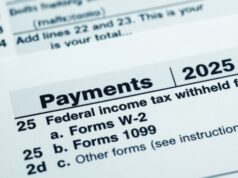
Economists have been forecasting a recession for months, and that looming downturn is one of the most anticipated in U.S. history. But it’s not yet materialized, in part due to strong consumer spending.
“Consumer spending represents more than half of the economy,” said Curt Long, chief economist at the National Association of Federally-Insured Credit Unions. “So if consumer spending is strong, that alone is, generally speaking, enough to keep the economy from slipping into a recession.”
A key reason for the fear: Inflation stayed stickier than economists anticipated. In May, the U.S. Bureau of Labor Statistics reported headline annual inflation of 4.9%.
To combat inflation, the Federal Reserve has hiked its overnight bank lending rate 10 times over the past year or so. At the Fed’s May meeting, policymakers hinted that they may pause further interest rate increases, barring unexpected developments.
The end of this tightening cycle may be coming into focus as consumers reach their breaking point. As the pandemic fades, historic levels of personal savings have taken a nosedive. Deposits at banks have crested as consumers keep spending amid continually rising prices.
Moderate-income Americans also are facing the significant headwind of less tax-refund money. The average refund this year is $2,777 through April 28, down 8% from the same period last year, according to IRS data.
“Because this is the same household that relies more on the tax refund to finance their spending, a lower refund really has some negative impact on their spending,” said Anna Zhou, an economist at the Bank of America Institute.
Still, economists see the chance for a soft landing. “We don’t think … the slowdown process will be as dramatic as some people have feared,” said Zhou. “And it will be a gradual process.”
Watch the video to learn how U.S. consumer spending has so far fended off a recession.
Disclaimer
The information contained in South Florida Reporter is for general information purposes only.
The South Florida Reporter assumes no responsibility for errors or omissions in the contents of the Service.
In no event shall the South Florida Reporter be liable for any special, direct, indirect, consequential, or incidental damages or any damages whatsoever, whether in an action of contract, negligence or other tort, arising out of or in connection with the use of the Service or the contents of the Service. The Company reserves the right to make additions, deletions, or modifications to the contents of the Service at any time without prior notice.
The Company does not warrant that the Service is free of viruses or other harmful components
This article originally appeared here and was republished with permission.












